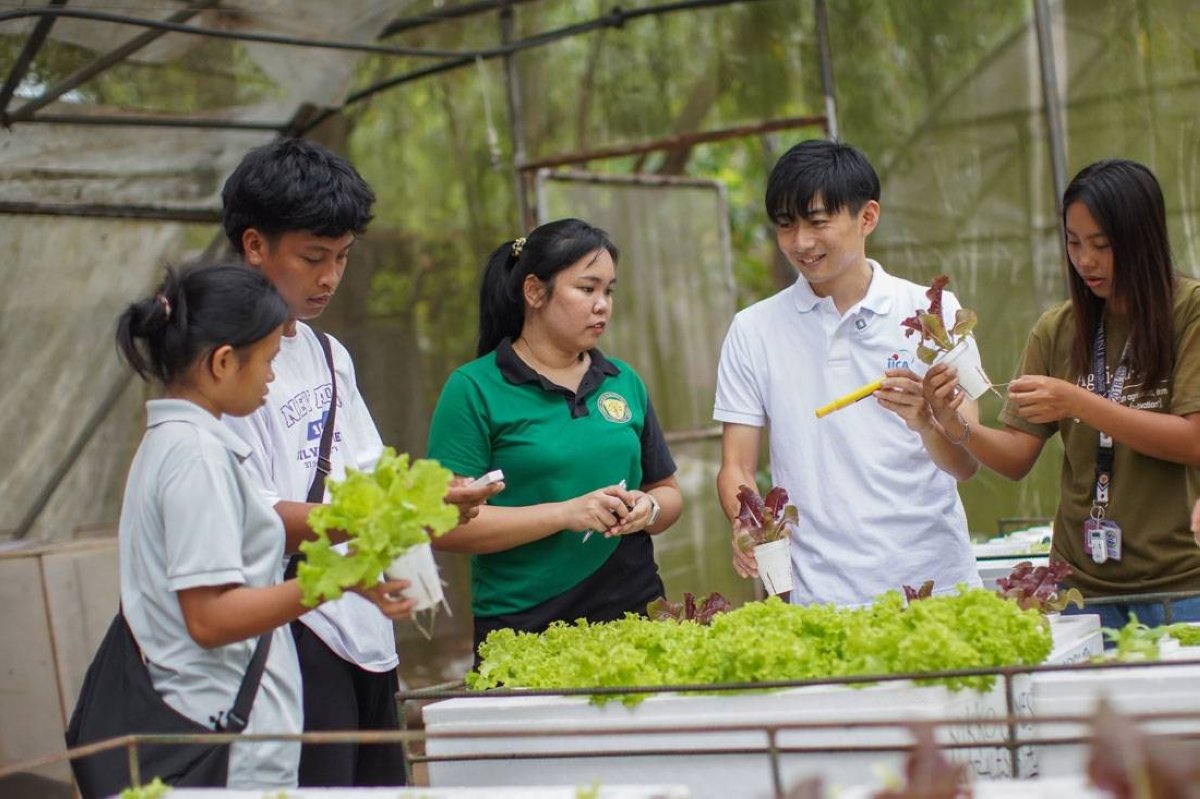IN marking six decades of volunteerism and making a difference, Japan International Cooperation Agency (JICA)’s Japan Overseas Cooperation Volunteers (JOCV) program celebrates every volunteer and local partner whose selfless contributions and compassion bring hope across the globe.
In 1965, JICA, through the JOCV program, began its mission with just 29 volunteers dispatched to five countries: the Philippines, Cambodia, Kenya, Laos and Malaysia.
The program has grown remarkably over the decades; now, reaching 99 countries and regions, and deploying about 58,000 JICA volunteers worldwide.
JICA’s JOCV program is a part of Japan’s Official Development Assistance to support developing countries through technical cooperation. The program sends Japanese volunteers overseas for, more or less, two years and allows them to immerse themselves within the communities they serve. They learn to connect through local language and culture, live and work on the ground, and carry out projects to help attain sustainable improvements within the community.

MUTUAL LEARNING JICA Volunteers contribute to the enhancement of teaching strategies by working with educators to improve instruction in mathematics at the primary level and in science and technical-vocational subjects at the senior high school level. PHOTO FROM JICA PHILIPPINES
Since the beginning, the program has been guided by three guiding principles. The first goal is to support the economic and social development — and if necessary, the reconstruction — of developing nations. The program also intends to promote deeper understanding and harmonious coexistence in culturally diverse communities. Finally, it seeks to give back to society through volunteer experiences.
Get the latest news
delivered to your inbox
Sign up for The Manila Times newsletters
The Lao People’s Democratic Republic (Lao PDR) is the very first country to welcome JICA volunteers. The inaugural batch, consisting of just five individuals, has marked the beginning of a long-standing legacy of volunteerism, friendship and cooperation.
Today, over 1,000 JICA volunteers have served in Lao PDR alone, contributing meaningfully in many sectors such as health, education, community development, agriculture, sports, youth engagement, information and communications technology, and environmental sustainability.
JOCV in the Philippines
The JOCV program has also been supporting the development of the Philippines since 1966 upon the arrival of the first batch of JOCVs in the country.
In 1996, the program welcomed the 100th batch of JOCVs in the Philippines. That year, JOCVs led a mango project in La Union, called La Union Botanical Garden.
To support the Philippine livestock industry, JOCVs were also sent to the Philippines in 1970 at the National Artificial Breeding Center.
Japanese volunteers and experts further strengthened this partnership in 1987 by founding the Philippine Animal Science Association to promote research and development in the livestock sector.
Another milestone was achieved in 2014 with the establishment of the country’s first fabrication laboratory in Bohol to support micro, small and medium enterprises in the creative sector.
For decades of friendship and service to the Philippines, the JOCV program was rightfully recognized with Asia’s prestigious Ramon Magsaysay Award in 2016 for its impact to the region’s progress.

CULTURAL BRIDGE Working hand in hand with local communities, governments and organizations, Japan Overseas Cooperation Volunteers serve as cultural bridges, strengthening the ties between the Filipino and Japanese people. The photo shows a Japan International Cooperation Agency (JICA) volunteer (2nd from right) in the Philippines’ agriculture sector. Volunteers assigned to agricultural communities collaborate with students, crop farmers and dairy farmers to improve farming practices, ensure proper livestock care, boost income opportunities and promote sustainable farming systems. PHOTO FROM JICA PHILIPPINES
In addition, JICA volunteers in the Philippines were honored with a Special Citation on Volunteerism by the National Economic and Development Authority’s Philippine National Volunteer Service Coordinating Agency for their efforts in the country’s human resource development.
From its humble beginnings in 1966 with just 12 volunteers, JOCV’s number of those dispatched to the Philippines has grown to 1,700 as of 2025.
The JOCV program in the Philippines has been strengthened by two major pillars. First, it aims to build the foundation for sustainable economic growth by empowering people and communities. This is achieved through skills development, training, product development and more. Secondly, it ensures human security for inclusive growth by helping improve the quality of life of Filipinos through access to basic social services.
JOCV cooperation in the Philippines also covers a wide range of fields and specializations, including disaster risk reduction and management, agriculture, welfare and education for persons with disabilities, tourism, nutrition, community development and marketing. As agents of change, JICA JOCVs continue to share their technical expertise across multiple areas, empowering communities to achieve self-reliance.
60 years of making a difference
The JOCV program celebrates its 60th anniversary with a yearlong project under the theme “The power of JICA Volunteers — Change the world, change Japan.”
In this celebration, JICA Philippines Chief Representative Baba Takashi sends a message of gratitude and support, saying, “At the core of the program is our battle cry: working passionately with communities. It is our driving force behind every classroom taught in, every field tilled, every clinic supported and every local project strengthened.”
He continues, stating, “To all JICA Volunteers, local partner institutions and Filipino counterparts, thank you for your fervor throughout this journey. Together, we have built a legacy of trust and friendship that shall continue to inspire participants of our program in the years to come.”
Voices from the field
Lifelong friendships and heartfelt connections between volunteers and communities have been formed through the JOCV program.
For Mikako Kanazawa, currently serving her first year as a volunteer science educator at Rosario Integrated School in Rosario, La Union, expresses how the experience has already changed her outlook on culture and the world.
“I’ve come to realize that, despite differences in language and appearance, people are fundamentally the same at heart,” Kanazawa shared.
In conducting biology experiments at school, she takes pride in using local plants and making the most of limited resources.
As a science teacher, Kanazawa finds true joy in seeing her students enjoy and engage with the experiments, stating, “I feel a strong connection with them as a teacher; just like I did in Japan.”
Alicia Aprecio, principal IV at Rosario Integrated School, commends Kanazawa for her service and many contributions not just in science education but also in school management and community engagement.
“She taught us that, when people from different backgrounds unite with a common goal, powerful change is possible, especially in shaping learners who are scientifically literate, socially responsible and globally ready. More than an educator, she became a bridge between cultures,” Aprecio shares, adding, “Through warm, sincere and meaningful intercultural exchanges, we celebrated the beauty of both Japanese and Filipino values. Her stories, discipline and respect for diversity deepened our understanding of what it truly means to be global citizens.”
Filled with gratitude, Ramon Magsaysay State University President Jesseca Ruth Diesta describes working with JICA volunteers as a “deeply enriching experience.”
Diesta explains, “These volunteers are not only generous with their time and expertise, but they also bring with them a spirit of collaboration and mutual respect that aligns with the Philippines’ national goals for volunteerism and sustainable development.”
Learning is a two-way street for volunteers and local communities. Japanese volunteers not only teach and share their culture, roots and experiences but also learn new languages, customs and traditions from the communities they serve.
When their service ends and they return to Japan, JICA volunteers carry with them not just lifelong lessons and deeper understanding of social challenges but a renewed sense of purpose to help address them within Japan and beyond.
May the Japan Overseas Cooperation Volunteers program continue to inspire and thrive for generations to come. Happy 60th anniversary, JOCV.











